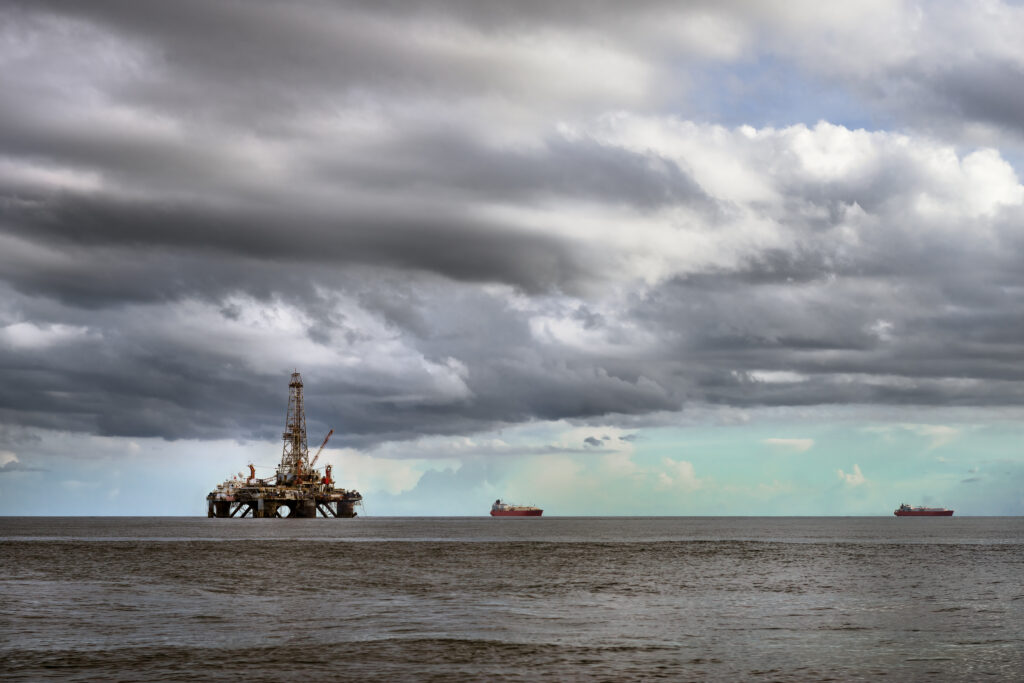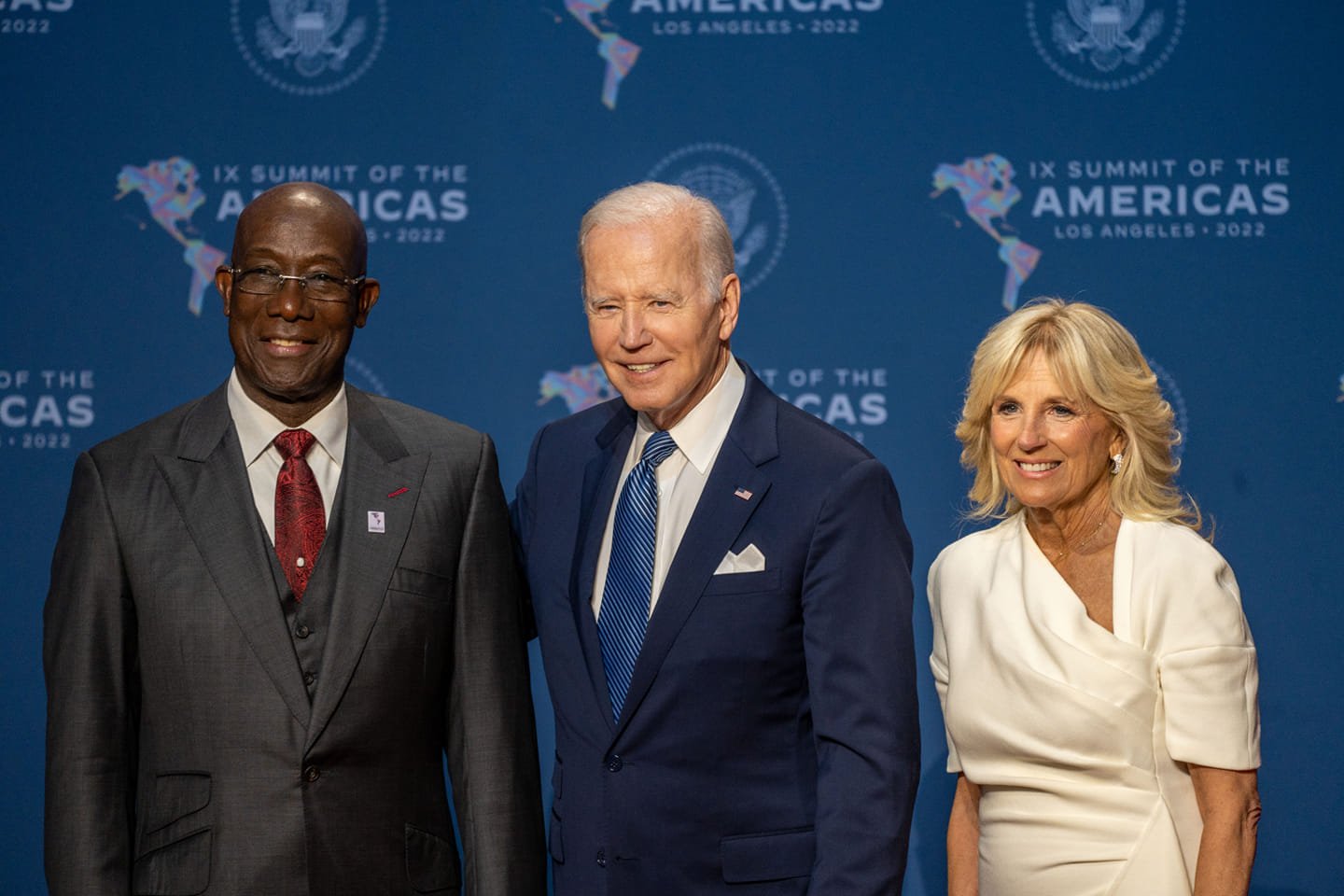

Being able to tap into Venezuela’s offshore gas reserves would provide a major economic boost to Trinidad and Tobago. The twin-island Caribbean country, located just off the coast of northeastern Venezuela, has the infrastructure to produce liquefied natural gas (LNG) and petrochemicals; however, its production has been below capacity because its own reserves of natural gas have been dwindling.
“We have always seen the national and regional importance of the natural gas resources in Venezuela and its close proximity to the existing world-class energy infrastructure in Trinidad and Tobago,” Rowley said during a press conference in Port of Spain.
Rowley said that Trinidad and Tobago had negotiated terms with Venezuela in 2018 to develop that country’s Dragon gas field, but that the plans had been put on hold due to U.S. sanctions on doing business with the Venezuelan oil and gas industry, imposed in 2019.
Last year, Trinidad and Tobago applied for a waiver from the U.S. Treasury Department’s Office of Foreign Assets Control (OFAC) so that it could pursue the development of the Dragon field. On January 24 of this year, OFAC granted it a license to proceed, with some details still to be finalized, according to Rowley.
The prime minister cautioned that the gas will not be available overnight. He explained that Trinidad and Tobago must still work out terms with its operating partner, Shell, and with the Venezuelan government. And even though the Dragon field has proven reserves, he said, there is still engineering work to complete, wells to be drilled, and a stretch of pipeline to be built to connect to its active Hibiscus offshore platform in Trinidad and Tobago waters.
“There’s still a lot more work to be done, but this is a giant step forward,” he said. “The highest hurdle has been crossed.”

At last year’s Summit of the Americas, the Prime Minister of Trinidad and Tobago, Keith Rowley (shown here with the U.S. President and First Lady, Joe and Jill Biden), along with his counterparts from other Caribbean countries, engaged U.S. leaders on energy security. Credit: U.S. Embassy Trinidad & Tobago
Rowley thanked several members of the U.S. Congress, as well as his counterparts in several Caribbean countries, for their support in encouraging the administration to grant the license. He said Caribbean leaders also engaged on the issue of energy security with U.S. President Joe Biden and Vice President Kamala Harris at last year’s Summit of the Americas.
The license is initially for two years, with the possibility of reapplying for ten, Rowley said. He described the plans to develop the gas field as “a win-win all around”—not only for Trinidad and Tobago but also for the broader Caribbean region and even for the U.S.
“Energy supply, energy security, in the Caribbean is energy security in the United States,” he said.
The license prohibits Venezuela from receiving cash payments for the gas it supplies to Trinidad and Tobago—a condition that Venezuelan President Nicolás Maduro has criticized in public comments, calling it a “colonial model.”
According to a report in the Wall Street Journal, the National Gas Company of Trinidad and Tobago Ltd. (NGC) plans to supply humanitarian goods such as food and medicine in exchange for the gas it acquires from Petróleos de Venezuela (PDVSA).

An LNG carrier ship off the coast of Trinidad and Tobago. The island nation’s LNG production has been below capacity because its own natural gas reserves have been dwindling.
David Goldwyn, who heads an international energy consulting firm called Goldwyn Global Strategies and has held high-level energy posts in the U.S. State Department, praised the decision to grant the license as a “welcome act of energy pragmatism.”
“It was pragmatic in providing a solution which accomplished the dual diplomatic goals of supporting Trinidad but not enriching Venezuela,” Goldwyn said in an interview with the Energy and Climate Partnership of the Americas (ECPA).
This is not the first exception to the sanctions. Late last year, for example, the U.S. Treasury Department allowed Chevron, which is part of a joint venture with PDVSA, to resume pumping oil in Venezuela. The Washington Post described the terms this way: “The limited license stipulates that any oil produced can only be exported to the United States. No profits from its sale can go to the Venezuelan state-owned company but must be used to pay off Venezuelan creditors in the United States.”
Granting the license in the case of Trinidad and Tobago, Goldwyn said, allows the U.S. to “show its bona fides as a good neighbor” and help meet the commitments it made last year through the U.S.-Caribbean Partnership to Address the Climate Crisis 2030 (PACC 2030).
“It’s an important step to make that real, because the Caribbean is suffering significant energy insecurity,” he said.
The license will help Trinidad and Tobago’s economy while also strengthening both energy security and food security in the region, Goldwyn said.
Food security comes into play because natural gas is a key raw material in the production of ammonia, which is used to produce fertilizers. Increases in natural gas prices—such as those seen last year—drive up fertilizer costs and make it even more important to have a nearby supply to save on transportation costs, according to Goldwyn.

Energy security and food security are closely linked because natural gas is a key raw material in the production of ammonia, which is used to produce fertilizers.
Natural gas is also critical from an energy standpoint, he said, noting that it is far preferable to fuel oil. “As the Caribbean tries to decarbonize from heavy reliance on fuel oil for power, having small-scale LNG will be a real indispensable tool to support renewables deployment, because it provides the resilience and the redundancy and addresses the intermittency of renewables,” he said.
Goldwyn estimated that it could take three to four years for the Venezuelan gas to reach Trinidad and Tobago.
During the press conference, Rowley did not give a date when the gas would start flowing, but said,
“We’ll be going full speed ahead to get it to market at the earliest opportunity.”
Under the terms of the license, he said, his country will give priority to supplying Trinidad and Tobago’s Caribbean neighbors who need LNG. He singled out Jamaica and the Dominican Republic as two countries that are already LNG importers and stand to benefit from the increased supply.

An oil refinery on the island of Aruba, off the northern coast of western Venezuela. The day when the Caribbean region can completely substitute hydrocarbon products “is a long way off,” Prime Minister Rowley of Trinidad and Tobago said in a recent speech. Credit: David Stanley.
In a speech on February 14 at an international energy conference in Guyana, Prime Minister Rowley talked about the Caribbean region’s continued dependence on imports of petroleum products. These represent 87% of primary energy consumption, with some countries spending up to 15% of annual GDP on fuel imports, he said, according to the text of his speech posted on the government website.
“With the appropriate investment, the region can substantially reduce its dependence on imported refined energy products by harnessing the natural power generated by solar, wind, geothermal, and hydroelectric sources,” he said. “Even so,” he added, “complete or significant substitution for hydrocarbon products is a long way off.”
Rowley blamed the slow pace of investment in green energy thus far on the relatively high cost of infrastructure and the region’s fiscal challenges. “The verbal encouragement, even aggressive demands, of the wealthy countries have not been accompanied by any requisite care and investment in our small, debt-laden, and struggling economies,” he said.
Meanwhile, he pointed to extensive exploration and crude-oil discoveries in the Caribbean as a potential “game changer” for the region. Fossil fuels remain the dominant energy source for the world and are cost-effective, he said.
“It is resilient and affordable energy that creates economic growth,” Rowley said. “Therefore, the concept of climate change should not prevent developing countries from using fossil fuels as sources of energy in pursuit of economic growth.”
Rowley called for greater cooperation on energy among the countries of the Caribbean. “We must use our energy resources for the benefit of our people, to build resilience and scale in our economies and to create energy security for the region,” he said.
 View Map
View Map